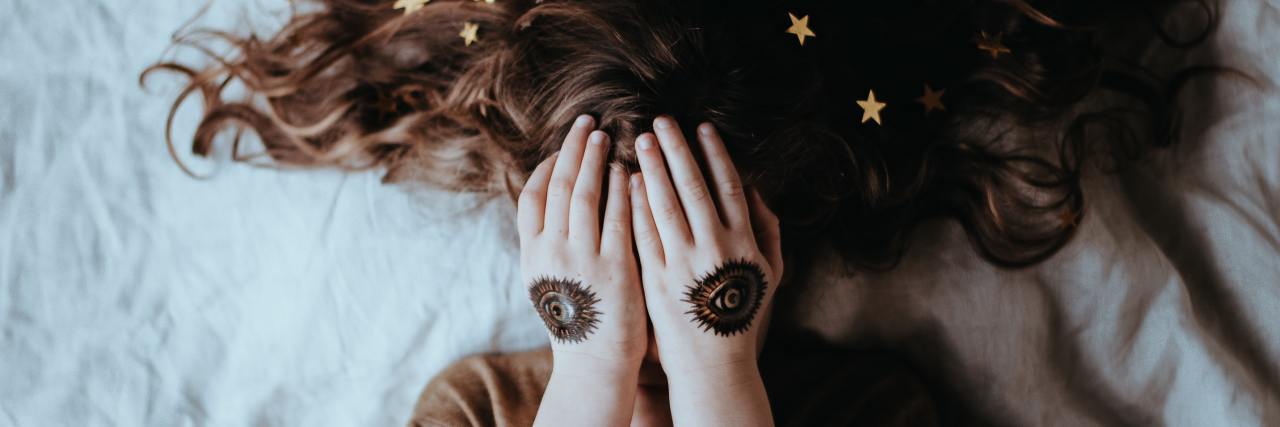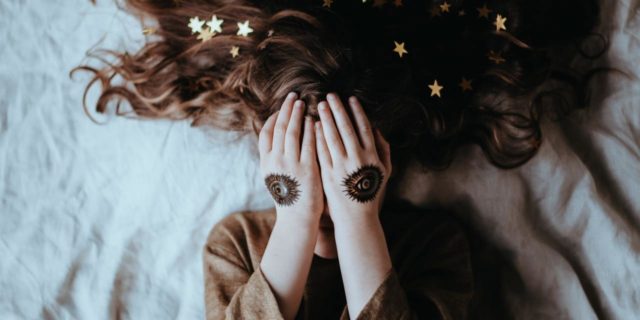A Picture is Worth a Thousand Words When Words are All You’ve Got – Living with #Aphantasia
I have a condition called Aphantasia. Simply put, I cannot visualize. Where other people can close their eyes and conjure up images within their minds, all I see when I close my eyes is blackness.
It might not sound like a big deal because in many ways it is not. My Aphantasia did not prevent me from doing well in school or participating in activities and sports as a child. I enjoy writing and art, I can cook and bake, and go through a thousand different menial tasks that are unimpeded by my condition. My life in many ways is normal and unhindered.
That is not to say that my Aphantasia does not impact my life in many random ways that others take for granted.
For example, I am horrible with people’s names. I can meet someone a dozen times and still have no clue what their name is when I meet them again. There will be a familiar itch that scratches at my memory but until something rings a bell and a connection is made, I am at a loss. Most people can simply close their eyes, conjure up a picture of someone and attach a name to that image. My mind contains no images, only words. My memory is full of descriptors. For instance, I might remember someone by an event we attended together or a pet they own and until that descriptor is revealed once again, I will often draw a blank.
This extends from people to items, as well. Even if someone catches me as I am headed to the store and asks me to pick up something for them, unless I am familiar with the specific item or write it down, chances are I might get it wrong. Though I try to retain as much information as I can on the fly, I am easily thrown off and confused when faced with similar-looking items. I cannot recall images, so I will question everything from size to brand to scent or flavor. My mind will usually hone in on a color or a shape, leaving me to stand there, holding two similar items, trying to decipher which might be the right one. Most people will simply take a mental snapshot to help them remember which item to get. Instead of one picture that retains all the important information, I would have to store away the brand, size, color, flavor, scent, logos and a multitude of other descriptive words.
I am severely directionally challenged. I could pass through somewhere multiple times and still find myself lost when I go there again. I get turned around easily, as well. Most people can close their eyes and recreate images of places they have been before. However, unless something very specific has happened in that location that I will distinctly remember with words, the image of most places remain in my head only as long as they are within my sight. Because I cannot close my eyes and instantly picture a walk I have done many times before, there is a distinct chance I could get lost headed there again. I might remember that there is a library on a specific street somewhere downtown but if the many random houses and buildings along the way mean nothing to me, nothing will feel familiar until the library comes into sight. If I turn onto the street a couple blocks too far, I might wander the wrong way for a period of time before the neighborhood changes enough for me to realize I have gone the wrong way.
I am also horrible with directions. Many people can close their eyes and retrace their steps. They can easily give detailed directions based on visuals they can recall, counting in their head, telling people to go down this street 8 blocks, take a right, go down 6 blocks more and take a left. Even if I have been somewhere before, I have trouble giving precise directions like that. Because I cannot visualize, short of memorizing every street and cross street in every town I have been in precisely in order, my brain has to come up with easier markers to remember, things that will stand out to me. My directions might include a house that still has their Christmas lights up in July or a tree with a huge knot on it that looks like a face. Simple things like a change in decor or a chopped down tree, however, will hurl me into a state of confusion that leaves me instantly lost again.
Though I enjoy being artistic and have been told I have both talent and a good eye, I have trouble creating physical representations of things without having pictures readily available. I love to sketch and paint, but cannot conjure up images in my mind so I need to reference actual pictures before I can get spacial differences and angles just right. Because I have to rely on pictures, my artwork often lacks originality. At best, it might contain inspiration from multiple sources, yet it still always feels vastly unoriginal to me. My writing, on the other hand, has greatly benefited from my lack of visualization. I tend to be superfluous with my words, always trying to verbally paint images others can understand even if, like me, they cannot see it in their head.
I am overly sentimental and cling to mementos and photographs because they give me a physical reminder that I can see and hold, something that is more than just words. No matter how many times I have seen someone’s face, the moment they leave my sight, I can no longer picture them. In my mind, I will cling to the detail of edges and curves of faces and bodies, freckles and dimples, wrinkles and scars, to find descriptors that set them apart. I have traced the angles of my fiance’s face a thousand times so I know the shape and feel of his face better than I know my own, because when I close my eyes, no matter how hard I try, I cannot see him. Both my parents have passed away. I don’t have any pictures of them so their faces are lost to me forever. While watching a movie or show, I might see an actor and think “my father had a jaw like that” or “my mother stood like that when she was upset” but those are only small segments, similarities I recognize, random sparks and connections. But the whole of their faces are gone.
Though I take classes in both tai chi and yoga, I always feel an entire segment of my classes are wasted on me. Whenever the instructors begin an exercise in meditation and visualization, it is completely lost on me. They will suggest everyone closing our eyes and imagining warm lights emanating from our cores or roots taking form and helping to ground us to the earth. When I close my eyes, however, all I can ever see is blackness. I spend that time, instead, concentrating on the feel of my breath entering and leaving my body, the feel of the air on my skin. I turn my entire focus inward to the here and now, trying to release the jumble of words ever-floating throughout my head. It is not meditation as others might do it but it is the best I can do.
I can go on and on with all the ways, big and small, that Aphantasia impacts my life. Think of all the mental pictures most people store away in their minds. Mental pictures for all the people, places and things they encounter every day of their lives. Not being able to create mental images might seem like a very trivial thing – until you take the time to try and describe all those pictures using just words.
Aphantasia can be exhausting. Most people store a multitude of images in their minds because it is faster, easier and more efficient. Imagine if you had to describe every one of those images using words to someone who had never seen what you were describing. You had no way to show them a picture, no way to help them understand other than describing everything. Imagine if you had to rely solely on your words. Imagine how time consuming it would be to collect a variety of descriptors for every item instead of being able to share one simple image. Now imagine that being your every minute, every day. Imagine only being able to pull up words for everything instead of images. How many words would you need?
In high school, my algebra teacher gave the class an assignment to write a paper, step by step, on how to make a peanut butter and jelly sandwich. The purpose was to teach the importance of showing all the work and not leaving out any steps. However, I think this technique would work wonders for raising awareness for Aphantasia. It would be a good exercise to have someone have to describe things in their lives, from the most important to the everyday trivial, to a sketch artist using only words. Much like nobody in my algebra class could successfully make a peanut butter sandwich by writing out the detailed steps one by one, I imagine most people would struggle equally as hard to find all the words to accurately describe a snapshot of their life.
People often assume I am forgetful or absent-minded, easily confused and lost in my own mind. The truth is, I often have to work at least two or three times as hard to recall anything because I cannot take the shortcut of storing pictures instead of words in my memory. People often say that a picture is worth a thousand words. Take a moment and think of a vacation picture or an old family photo that means a lot to you. Think of the different shades in that sunset along the coastline on your honeymoon or the creases in your deceased grandparents’ faces when they smiled, that small scratch on the rear side just above the bumper on your first car or the way your prom date looked standing next to it. Imagine trying to recreate those whole scenes again, by memory, piece by piece, using only words. Would a thousand words be enough? Welcome to my world.
This piece originally appeared on Unlovable at: unlovablebook.wordpress.com/2018/09/24/a-picture-is-worth-a-...


